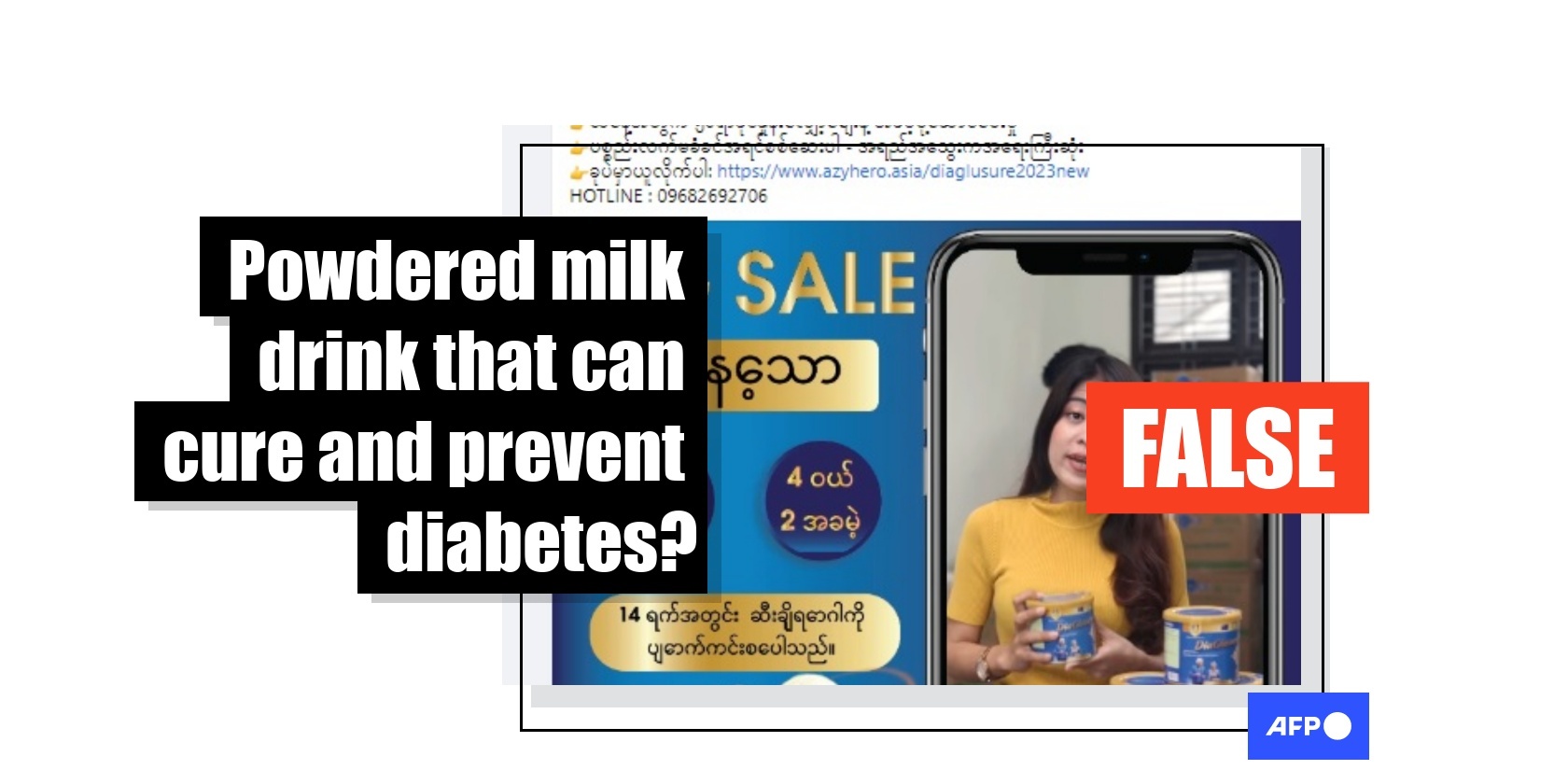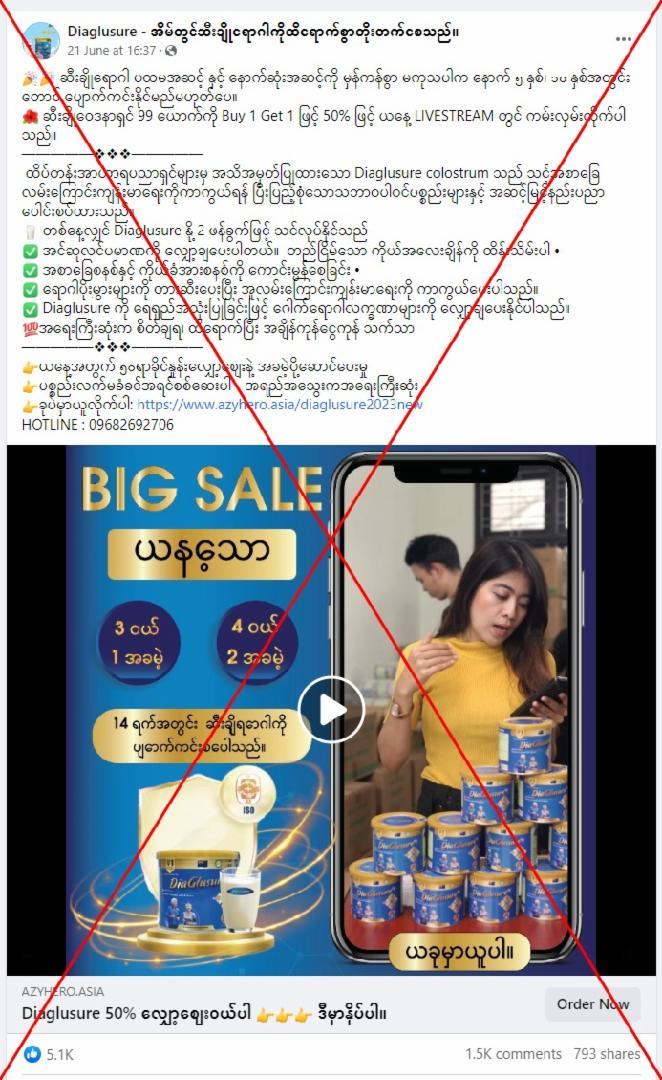
Advert falsely promotes milk powder drink as diabetes treatment in Myanmar
- This article is more than two years old.
- Published on August 15, 2023 at 08:43
- 3 min read
- By AFP Thailand
The Burmese-language advertisement was shared in a Facebook post on June 21, 2023, and has since been viewed more than 368,000 times.
The video shows a woman stood besides several tins of the product -- a powdered milk drink called "Diaglusure" -- explaining that it can help to prevent diabetes, balance blood sugar levels and help reduce diabetes symptoms.
A still image in the video promotes a "big sale" and additionally claims the product "cures diabetes in 14 days".
The post also links to a website that makes similar claims, and adds that the product was "researched and produced by New Zealand's Nutrition Department".

Similar posts advertising the product were shared elsewhere on Facebook here, here and here.
But the claims are false; there is currently no cure for diabetes and experts told AFP there is no evidence that medication or supplements can help to prevent the disease.
Diabetes prevention and treatment
According to the charity Diabetes UK, there are two main types of diabetes -- type 1 and type 2 -- and there is no cure for either yet (archived link).
The US Centers for Disease Control and Prevention (CDC) explains that people with type 1 diabetes cannot make the hormone insulin, which helps to convert sugars in the food we eat into energy. This causes blood sugar levels to rise, which can cause serious health problems (archived link).
People with type 1 diabetes will need to take insulin every day, and the World Health Organization (WHO) says it cannot be prevented (archived link).
The CDC says type 2 diabetes, where the body does not use insulin well, can be prevented by making lifestyle changes such as eating a healthier diet and becoming more physically active (archived link).
Jenna Sherman, program manager for Meedan's Digital Health Lab, an organisation that tackles health misinformation, told AFP there is no evidence the product can cure or treat type 2 diabetes (archived link).
Most of the "treatment", she said, is about making lifestyle changes, such as exercising more or eating healthier.
"It is possible that the supplement -- which appears to be a dietary supplement -- could potentially help with healthy diet; however, without guarantee of the ingredients or studies on the supplement, there is no evidence to support this possibility," she said on July 13.
"It makes sense that people would turn to alternative potential treatments for type 2 diabetes given how complex and debilitating the condition can be, but evidence for any cures does not exist yet."
Dr Thurein Hlaing Win, country manager of healthcare website Hello Sayarwon in Myanmar, also told AFP preventing type 2 diabetes depends on lifestyle changes (archived links here and here).
"Currently, there are no known medications or supplements that can prevent diabetes," he said on August 10.
"It's hard to determine if Diaglusure is suitable for diabetes patients, as we lack information about the ingredients it contains... If (Diaglusure) is high in sugar, it will pose greater risks than benefits to diabetes patients," he added.
'Not approved as medicine'
Asked about the claim the product had been "researched and developed" in New Zealand, a spokesperson for the country's Ministry of Health told AFP on July 6: "These products have not been approved as medicines by Medsafe."
Medsafe is the New Zealand Medicines and Medical Devices Safety Authority, which is responsible for regulating therapeutic products in the country (archived link).
Under the Australia New Zealand Food Standards Code, food cannot be advertised and sold as a therapeutic product in the country (archived link).
Jenny Bishop, acting deputy director-general of New Zealand Food Safety told AFP on July 7: "This means that food for sale cannot refer to the prevention, diagnosis, cure, or alleviation of a disease, disorder, or condition."
AFP has previously debunked other false claims about supplements for diabetes treatment here, here and here.
Copyright © AFP 2017-2026. Any commercial use of this content requires a subscription. Click here to find out more.
Is there content that you would like AFP to fact-check? Get in touch.
Contact us
